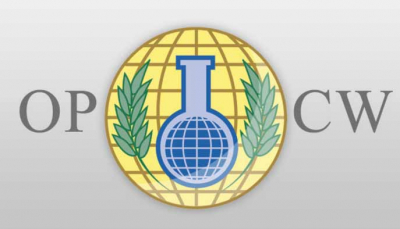


For many years, IAP has been at the forefront of promoting responsible research practices. In 2012, for example, Responsible Conduct in the Global Research Enterprise: A Policy Report 'Responsible Conduct in the Global Research Enterprise’ was released, followed earlier this year by 'Doing Global Science: A Guide to Responsible Conduct in the Global Research Enterprise'. In addition, IAP has supported a survey and awareness-raising workshops in Pakistan (see: Survey and Awareness of Dual Use Education in Pakistan.
For these reasons, IAP was pleased to get involved when approached by the Organization for the Prohibition of Chemical Weapons (OPCW) to collaborate on a series of regional workshops to promote the work of the OPCW, especially the use of chemistry for peaceful purposes.
The first workshop in this series took place in Pretoria, South Africa, hosted by the Academy of sciences of South Africa (ASSAf) on 18-20 October 2016. Some 30 young African scientists from 16 countries, several of them nominated via their national academies, attended. Because of the links between science practice and policy, the event - titled ‘Policy and Diplomacy for Scientists – Introduction to responsible research practices in chemical and biological sciences’ - was also held under the auspices of the TWAS Science Diplomacy programme.
In his opening presentation on 'The InterAcademy Partnership – Identifying challenges, promoting responsible research’, IAP coordinator Peter McGrath presented some of the findings of the project undertaken by the Pakistan Academy of Sciences that aimed to promote awareness of dual-use research in the biosciences in remote areas of Pakistan. The report of the Pakistan project notes that about 50% of students had some idea of the concepts of biosafety, bioethics, dual-use research etc. before they attend the workshop. In contrast - emphasising the scale of the outreach work that needs to be done - a show of hands of the participants from sub-Saharan Africa revealed that none of the 29 had received any training at the undergraduate or graduate level on such issues and, for those who were now lecturing, did not include such issues in their courses.
Among the different sessions, participants also visited the Nelson Mandela Foundation to view an exhibition, ‘Poisoned Pasts: Legacies of the South African chemical and biological warfare programme’. This programme was developed during the apartheid era, but many questions still remain despite the best efforts of South Africa's Truth and Reconciliation Commission, other investigations and court cases.
After hearing about such cases, and through interactive group discussion sessions, by the end of the course many participants agreed that they would begin introducing such concepts into the courses they teach and to lobby within their institutions for wider recognition of OPCW and its aims.
A full report of the workshop is available on the OPCW website HERE.